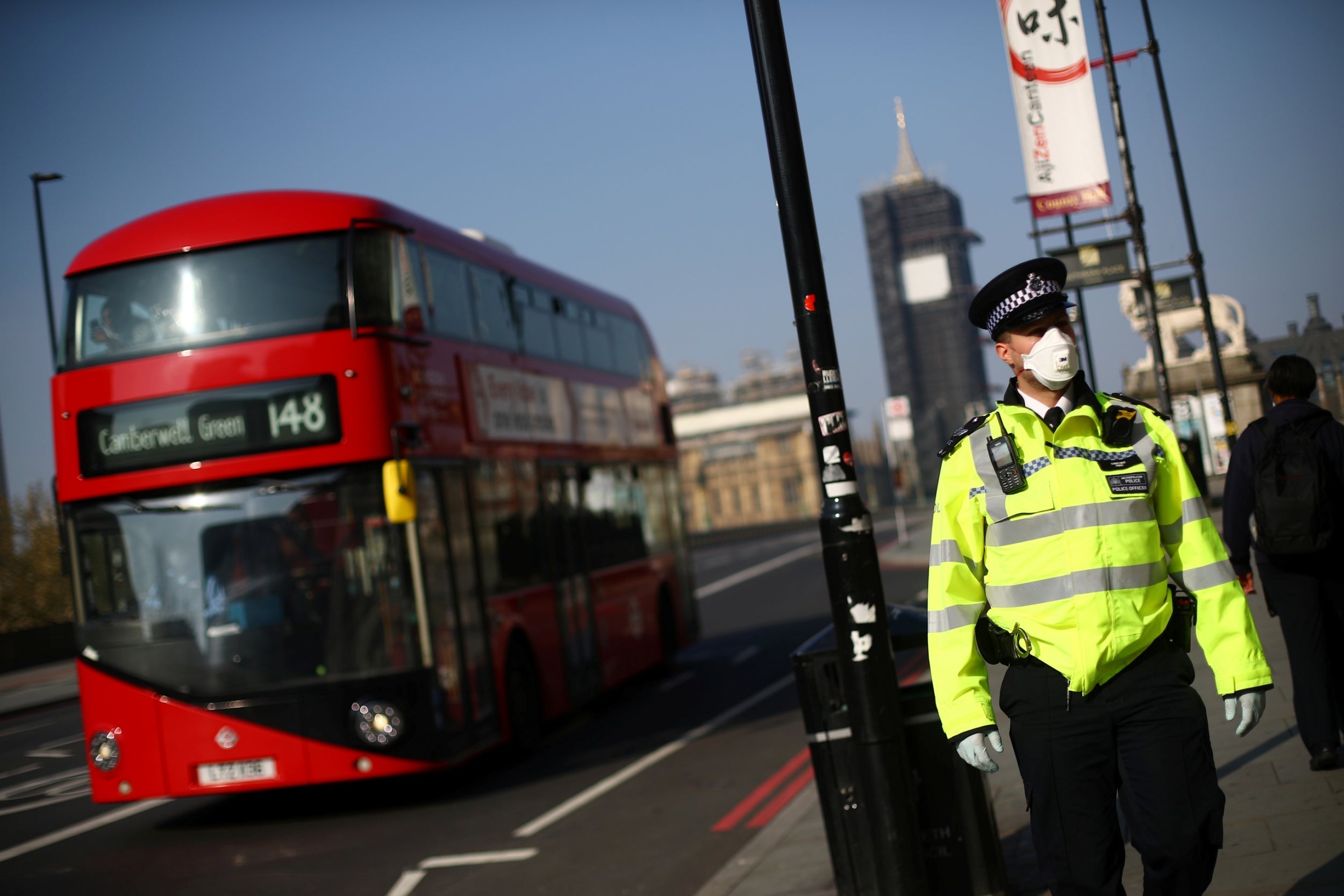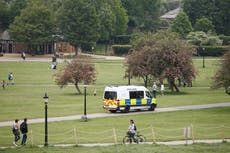Almost a third of prosecutions under coronavirus laws dropped, review shows
Exclusive: Campaigners say ‘arbitrary and wrongful enforcement’ will damage public trust

Your support helps us to tell the story
From reproductive rights to climate change to Big Tech, The Independent is on the ground when the story is developing. Whether it's investigating the financials of Elon Musk's pro-Trump PAC or producing our latest documentary, 'The A Word', which shines a light on the American women fighting for reproductive rights, we know how important it is to parse out the facts from the messaging.
At such a critical moment in US history, we need reporters on the ground. Your donation allows us to keep sending journalists to speak to both sides of the story.
The Independent is trusted by Americans across the entire political spectrum. And unlike many other quality news outlets, we choose not to lock Americans out of our reporting and analysis with paywalls. We believe quality journalism should be available to everyone, paid for by those who can afford it.
Your support makes all the difference.Almost a third of prosecutions under coronavirus laws have been brought incorrectly, leading to hundreds of cases being dropped, analysis has revealed.
A review by the Crown Prosecution Service (CPS) found that 359 of 1,252 charges last year under laws brought in to aid public health measures were later withdrawn or quashed in court.
Campaigners warned of “arbitrary and wrongful enforcement” of the Coronavirus Act, which gives police powers to detain “potentially infectious persons”, and the Health Protection Regulations, which covers lockdowns and other restrictions.
Every one of the 232 prosecutions brought under the Coronavirus Act was incorrect, with its misuse described as an “embarrassment” to the justice system.
A further 127 wrongful charges were brought under the Health Protection Regulations, which were created to enforce the first nationwide lockdown in March 2020 and have been changed numerous times for different restrictions.
They represent around 12 per cent of prosecutions under the law, which is more commonly enforced by police using fines.
Kirsty Brimelow QC, a human rights barrister, told The Independent: “Police chiefs have blamed a small number of overzealous officers for wrongful arrests. But they continue happening. It is not an answer that the public should be getting the hang of the Covid laws when the police clearly aren’t.”
The Liberty human rights group called for the government to support people to follow health guidance rather than having a “relentless focus on enforcement”.
“Anyone who suggests that we all know the rules by now has perhaps forgotten the government’s confused communication of the ever-changing regulations and guidance.” director Gracie Bradley said.
“It’s also impossible to know how many unlawful fines have already been paid by people too afraid to challenge them – the government must urgently introduce a right to appeal fines. Frequent and high-profile instances of arbitrary and wrongful enforcement have fanned the flames of mistrust.”
Analysis by The Independent shows that the proportion of wrongful charges under the Health Protection Regulations peaked in November, while the highest number of incorrect Coronavirus Act charges was in June.
The CPS figures only cover finalised cases in England and Wales, and more prosecutions are currently progressing through the courts.
Reports issued by parliament’s Home Affairs Committee and Joint Committee on Human Rights had called for mistakes by police to stop in April, warning of the potential for miscarriages of justice and punishment “without any legal basis”.
MPs said that some police officers appeared to be enforcing government guidance rather than the law, and that differences between the two were causing confusion among the public and law enforcement.
Martin Hewitt, chair of the National Police Chiefs’ Council, said that the number of fines being issued by police was nearing record levels at the end of January.
He told journalists that officers had been “moving more quickly to enforcement where people are clearly and deliberately breaching the rules” since October.
Almost 43,000 fines had been issued under the Health Protection Regulations by 17 January, with the penalties ranging between £60 and £10,000 depending on the version of the law under which they were imposed.
Ms Brimelow said the proportion of wrongful prosecutions suggested “there is likely to be thousands of unlawfully issued” fines, adding: “The refusal of the police to review fixed penalty notices in the same way that the CPS is reviewing prosecutions serves only to deepen mistrust as well as add to hardship of people who cannot afford to pay.”
The vast majority of wrongful prosecutions were brought by police and withdrawn by the CPS before people were convicted, but 56 cases had to be returned to court to be quashed.
They include a woman who was fined £660 for a crime she had not committed, five days after the Coronavirus Act became law last March.
It gives police the power to direct “potentially infectious persons” to a place suitable for screening and assessment, and take them by force if they refuse.
The law makes it a criminal offence punishable by a fine of up to £1,000 to refuse a direction, escape or provide false information.
It was drawn up at a time when the threat of coronavirus was mainly perceived to come from abroad, but days later the first national lockdown was announced and the Health Protection Regulations made it illegal to leave home without “reasonable excuse”.
Liberty said the Coronavirus Act must be repealed, as did the Big Brother Watch organisation, calling it an “embarrassment and a gross injustice”.
Ms Brimelow warned that miscarriages of justice would continue as long as the act’s criminal offences remained on the statute book.
“A law that only has ever been unlawfully used is not a just law,” she told The Independent. “This is a strong reason to repeal it.”
But the government has said it has no intention of scrapping the law and the head of the CPS said that it would be making no formal recommendations, despite the findings of its review.
Max Hill, the director of public prosecutions, told The Independent: “The act has a purpose. It’s right that we must point out where there’s been a mistake made and we will continue to do that, but any changes are not for us to recommend and not for us to put into effect.”
A spokesperson for the NPCC said enforcement of coronavirus laws remained a “last resort”, and that a very small proportion of cases had resulted in prosecution.
“When new regulations are issued, we ensure officers have additional guidance on the legislation and we continue to support them to reduce any errors in the application of the regulations, which police are also quickly adapting to in unprecedented circumstances,” she added.
“Where we identified any mistakes, forces have quickly sought to put these right and we have worked with criminal justice partners to achieve this.”
A government spokesperson said: “We are working with the NPCC and College of Policing to ensure appropriate guidance is in place, officers are equipped to charge offences correctly and are able to carry out their duty to protect the public.”




Join our commenting forum
Join thought-provoking conversations, follow other Independent readers and see their replies
Comments